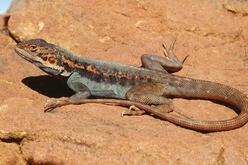Aerial surveys have confirmed scientists’ fears that mass bleaching is occurring on the Great Barrier Reef now, with widespread bleaching caused by heat stress following the hottest February on record since 1900.
The Great Barrier Reef Marine Park Authority today reported a wide variety of bleaching severity – ranging from no bleaching in some areas to the most severe category in others.
Great Barrier Reef Foundation Chief Scientist Professor Peter Mumby said, “This is the third large-scale bleaching of the Great Barrier Reef in five years.”
“The pace at which bleaching events are now occurring on the Reef is a matter of huge concern.
“It highlights the importance of transitioning rapidly to a low carbon economy while at the same time reef management has a vital role to play in helping reduce additional stressors.
“The Foundation has more than 60 projects devoted to this task, including improved control of crown-of-thorns starfish, partnering with landholders in mitigating pollution, exploring the potential for active reef restoration, and designing more targeted means of protecting the Reef to increase effectiveness,” Prof. Mumby said.
The extent of the bleaching and its severity is still unfolding. When aerial surveys are completed at the end of this week, scientists will then be able to compare the current situation with 2016 and 2017.
Great Barrier Reef Foundation Managing Director Anna Marsden said it was important to remember that bleached corals are not dead corals.
“While news of our Reef bleaching is of great concern, there is still hope, the Reef remains a resilient ecosystem and it can recover,” Ms Marsden said.
“We know that on mildly or moderately bleached reefs, there is a good chance most bleached corals will recover and survive.
“It’s heartening to hear that some of the key tourism reefs in the north and central areas are amongst those likely to bounce back from lesser levels of bleaching.
“That’s why it’s so important that the Foundation continues to support the critical work of the Great Barrier Reef Marine Park Authority and science partners including the Australian Institute of Marine Science in responding to the bleaching situation.
“Working together with our project partners, we’re focusing on the three keys areas of response, recovery and resilience.
“This support includes boosting support for the first responders to coral bleaching, helping the surviving coral reefs by reducing other stressors to give them the best chance of staying healthy, and promoting new coral growth through local restoration activities like larval reseeding.
“Saving the Reef is a huge task, but it’s one that Australia can and must meet. There’s no alternative, but there is hope.”








